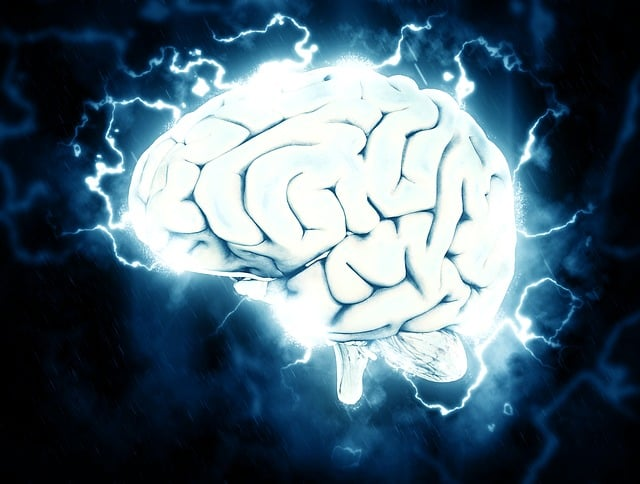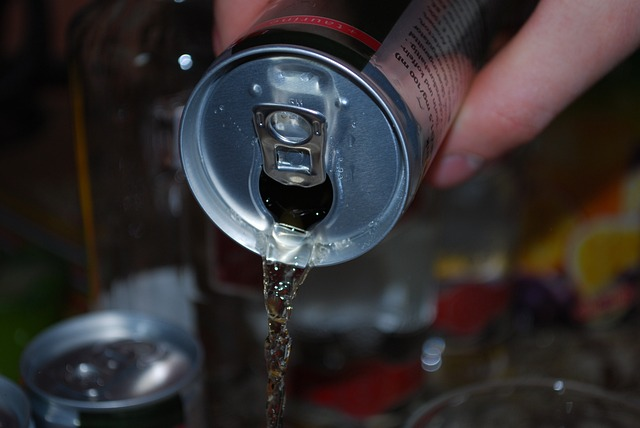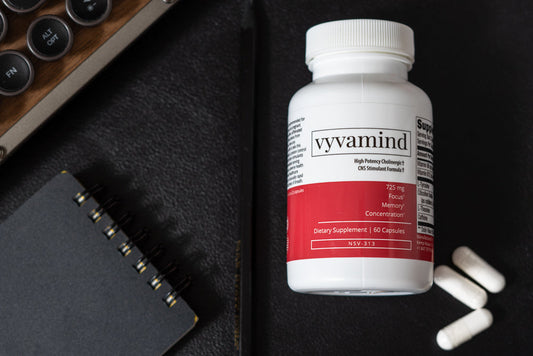Uncovering Energy Drink Side Effects Long Term

That familiar crack of an energy drink can opening - it's become the soundtrack of modern life. From dawn meetings to late-night study sessions, these supercharged beverages have worked their way into our daily routines, promising that perfect mix of mental clarity and physical boost. But here's what keeps me up at night (and not in a caffeine-induced way): What happens when we make these drinks our long-term companions?
Let's cut through the marketing buzz and talk about what really goes on when energy drinks become your go-to solution. If you've ever found yourself staring at that brightly colored can and wondering "What am I actually doing to my body?" - you're not alone. With worldwide consumption skyrocketing, understanding the long-term impact of these drinks isn't just interesting - it's essential.
In this deep dive, we're going to explore the not-so-pleasant surprises these drinks might have in store for your body. We'll look at how they affect everything from your heart to your digestive system, and why that morning "boost" might be causing more trouble than it's worth. You'll learn what's actually hiding behind those exotic-sounding ingredients, and how caffeine is just one piece of a complex puzzle.
But don't worry - this isn't just about pointing out problems. By the end of this post, you'll have a clear picture of smarter alternatives that can give you the energy you need without the potential health trade-offs. Whether you're a daily drinker or an occasional sipper, it's time to understand exactly what you're cracking open.
Key Takeaways
- Research has revealed concerning patterns of cardiovascular strain and neurological effects in long-term users, particularly when consumption becomes a daily habit.
- Everyone's caffeine tolerance is unique. That same drink that barely affects your coworker might have you bouncing off the walls or dealing with jitters for hours.
- The good news? You've got options. Whether it's switching to Vyvamind for a more controlled energy boost, embracing natural caffeine sources like green tea, or simply loading up on energy-rich whole foods, there are smarter ways to maintain your energy levels.
Long-Term Health Risks of Energy Drinks

That quick energy fix comes with some strings attached. While most of us focus on the immediate boost energy drinks provide, the long-term story is more complicated - and frankly, concerning. Let's break down what happens when these drinks become a regular part of your routine.
Your Heart on Energy Drinks
The relationship between energy drinks and heart health is raising red flags, particularly for younger consumers. The caffeine content in these drinks doesn't just give you a buzz - it can significantly impact your cardiovascular system. We're seeing cases of racing hearts, blood pressure spikes, and in some serious situations, irregular heartbeats and even heart attacks. It's not just about how much you drink today; it's about what happens when this becomes your daily routine.
When Your Brain Pays the Price
Your nervous system takes notice of every energy drink you consume. Beyond the initial alertness, regular consumption can trigger a cascade of neurological issues. Think persistent anxiety, nights of tossing and turning, and a constant state of restlessness. In severe cases, these drinks have been linked to seizures and strokes - turning that quick energy boost into an emergency room visit.
The neurological impact often shows up as:
-
Blood sugar rollercoasters that leave you feeling wired, then exhausted
-
Persistent nervousness that's hard to shake
-
Muscle twitches that seem to come from nowhere
-
Sleep problems that create a vicious cycle
-
Headaches that become more frequent
-
Long-term changes in brain function
-
Cellular changes in brain tissue
Your Digestive System's Perspective
Your stomach has something to say about energy drinks too. The combination of high sugar content and other ingredients can wreak havoc on your digestive system. We're not just talking about temporary discomfort - regular consumption has been linked to serious conditions like obesity and type 2 diabetes.
The gut issues often present as:
-
Stomach acid production going into overdrive
-
Chronic acid reflux that disrupts your day
-
Digestive problems that persist
-
Inflammation of your stomach lining
Each sip affects multiple systems in your body, creating a complex web of potential health challenges. Understanding these risks isn't about fear - it's about making informed choices about your daily habits and long-term health.
The Caffeine Factor: How Much is Too Much?

Let's talk about the elephant in the room - caffeine. It's the star ingredient in energy drinks, the one that delivers that mental clarity and kick you're looking for. But like any powerful tool, it comes with its own set of rules and limits. Understanding these isn't just about playing it safe - it's about getting the benefits you want without the downsides you don't.
Finding Your Sweet Spot
That magic number of 400mg daily caffeine - about four regular cups of coffee or typically two to three energy drinks - isn't just pulled from thin air. It's where most people start seeing diminishing returns and increasing risks. But here's what often gets overlooked: your personal caffeine "sweet spot" might be totally different from someone else's. Your age, weight, overall health, and even genetics play a role in how you process caffeine. If you're looking for precise control over your intake, caffeine pills can offer more accurate dosing than drinks, though the daily limits remain the same.
When More Stops Being More
Your morning energy drink might have packed a punch when you first started, but now? Maybe not so much. That's tolerance talking - your body's way of saying "I'm getting used to this." This adaptation process affects several aspects of your daily life:
-
Your cardiovascular system starts responding differently
-
Your workout performance might plateau
-
That mental edge you're seeking becomes harder to achieve
-
You need more caffeine to feel "normal"
This tolerance can lead to a concerning cycle where blood pressure issues creep in, potentially opening the door to:
-
Increased heart disease risk
-
Higher stroke probability
-
Heightened anxiety levels
-
Disrupted sleep patterns
-
Various other health complications
The Break-Up Blues
Deciding to cut back on energy drinks isn't just a mental challenge - your body has something to say about it too. The withdrawal symptoms can feel like a bad hangover:
-
Throbbing headaches that seem to last forever
-
An overwhelming sense of fatigue
-
Brain fog that makes simple tasks feel impossible
-
Waves of nausea
-
Unexplained muscle aches
-
A shorter fuse than usual
These symptoms typically stick around for a few days to several weeks, depending on your consumption patterns. The good news? Simple strategies like staying hydrated, getting proper sleep, and staying active can help ease the transition. Understanding this process helps you make more informed decisions about your daily energy drink habits and maybe even find a better balance.
Hidden Ingredients: What Else is in Your Energy Drink?
That ingredient list on your energy drink can read like a chemistry textbook. While caffeine and sugar take center stage, there's a supporting cast of ingredients that deserve your attention. Let's pull back the curtain on what's really swimming around in that can.
The Not-So-Sweet Truth
Ever notice how some energy drinks claim "sugar-free" but still taste sweet? Enter artificial sweeteners like stevia and sucralose. While they might seem like a clever way to dodge calories, your body might have other thoughts about these sugar substitutes. The digestive drama can include:
-
Unexpected urgent bathroom visits
-
That uncomfortable puffy feeling that makes your clothes feel tight
-
Embarrassing digestive sounds at the worst moments
-
Stomach pains that make you regret your drink choice
The Science Experiment
Then there's the laboratory's worth of amino acids and herbal extracts packed into each can. Taurine, l-carnitine, tyrosine - they sound impressive, and guarana adds that exotic touch. But here's the thing: we're still writing the book on how these ingredients affect our bodies over time. It's like being part of an uncontrolled experiment where we're just starting to understand the results.
When you grab an energy drink, you're not just getting a caffeine kick - you're signing up for a complex cocktail of ingredients that could affect your body in ways we're still discovering. While these additives might be approved for use, their long-term impact on your health isn't fully mapped out. Keeping yourself informed about these ingredients isn't about paranoia - it's about making choices you won't regret later.
Energy Drinks and Lifestyle Choices

That can of energy drink isn't just affecting your afternoon - it's quietly reshaping your entire day. From your morning decisions to your nighttime routine, these drinks have a way of inserting themselves into every corner of your lifestyle. Let's talk about what really happens when energy drinks become your go-to solution.
The Dangerous Dance: Energy Drinks and Alcohol
You've probably seen it at parties - mixing vodka with energy drinks has become almost standard practice. But this combination is like wearing a blindfold while driving. The energy drink masks alcohol's natural warning signs, making you feel sharp when you're actually impaired. You might think you're fine to keep going, while your coordination and judgment are taking a serious hit.
The energy boost tricks your brain into thinking you're more sober than you are, leading to riskier decisions and potentially dangerous situations. It's not just about feeling good in the moment - it's about staying safe through the night and the next day.
When Your Daily Rhythm Takes a Hit
Think that 3 PM energy drink won't affect your 10 PM bedtime? Think again. These drinks don't just disappear from your system when you need them to. Instead, they stick around, messing with your natural sleep patterns and throwing off your exercise routine.
That afternoon boost often comes with an evening price tag: tossing and turning at night, hitting snooze too many times the next morning, and finding every excuse to skip your workout. It becomes a vicious cycle - poor sleep leads to more energy drinks, leading to worse sleep, and suddenly your healthy habits are slipping away.
Understanding how these drinks affect your whole day isn't about giving them up entirely - it's about making conscious choices that keep you in control of your routine rather than letting the drinks control you. Sometimes the best energy boost comes from working with your body's natural rhythms rather than fighting against them.
Healthier Alternatives for an Energy Boost
Looking for that energy boost without the health question marks? You've got options - and they don't all come in a neon-colored can. Let's explore some smarter ways to keep your energy levels up without the crash-and-burn cycle.
Vyvamind - The Easiest, Safest and Strongest Substitute

If you're ready to break up with energy drinks but not with productivity, Vyvamind might be your answer. Unlike the sledgehammer approach of traditional energy drinks, Vyvamind takes a more sophisticated path to boosting your energy levels. Think of it as upgrading from a sugar rush to sustained, clean energy.
Let's talk about what makes it different. By combining natural powerhouses like guarana, green tea, and ginseng, Vyvamind delivers a smooth lift in energy, motivation, and focus without the rollercoaster ride of typical energy drinks. You won't find yourself checking the clock for your next fix or dealing with that dreaded afternoon crash.
The beauty of this approach lies in what it helps you avoid. While energy drinks can send your heart racing and blood pressure climbing, Vyvamind's natural ingredient profile works with your body rather than shocking it into alertness. Sleep becomes your friend again instead of an elusive enemy, and you can say goodbye to those jitters that make you feel like you've been mainlining espresso.
This isn't just about swapping one energy source for another - it's about choosing a smarter way to maintain your edge throughout the day. Whether you're tackling a demanding project, part way through an intense gaming session, delivering a presentation, or simply just trying to keep up with life's daily demands, Vyvamind offers a path to sustained energy that doesn't come with a side of health concerns.
Natural Energy: Going Back to Basics
Let's get real about caffeine - nature got there first, and often does it better. Before energy drinks exploded onto the scene, people were getting their daily boost from sources that have stood the test of time. And there's good reason these classics haven't gone out of style.
Your natural caffeine toolkit can include:
-
Coffee, which brings more than just caffeine - it's packed with antioxidants that support overall health
-
Tea, offering a gentler lift with compounds that actually help you stay calm while alert
-
Dark chocolate, delivering a subtle boost alongside mood-enhancing compounds
-
Select energy beverages made from natural sources, when you want something different
Here's what makes these natural options special: they come with their own supporting cast of beneficial compounds that work together with caffeine. Think of it as getting the full orchestra instead of just one instrument. You're not just getting energy - you're getting nutrients that help your body use that energy more effectively.
For those who want precise control over their caffeine intake, high-quality caffeine pills derived from natural sources can offer a convenient alternative. They provide the benefits of natural caffeine in a more measured, portable form.
The best part? These traditional sources give you that mental clarity and energy kick you're looking for, without the question marks that come with artificial energy drinks. It's about working with your body's natural rhythms rather than trying to override them.
Real Power Food: Beyond the Quick Fix
Let's talk about energizing your body the right way. Instead of reaching for that can of liquid lightning, consider this: your body already knows how to create energy - it just needs the right tools for the job.
Think of nutrient-rich foods as your body's premium fuel. Loading up your plate with colorful fruits and vegetables, hearty whole grains, lean proteins, and healthy fats isn't just about eating well - it's about giving your cells exactly what they need to keep you running at full power. When you feed your body real food, it rewards you with real, lasting energy.
The Hydration Connection
Here's something that might surprise you: that afternoon slump might just be your body's way of asking for water. Proper hydration is like oil in an engine - everything just works better when you've got enough. Water is your best bet, but you can mix it up with herbal teas or low-sugar sports drinks when you need something different.
Building Your Energy Blueprint
Creating steady, all-day energy isn't about quick fixes - it's about consistency. Start your day with protein-rich foods to stabilize blood sugar. Keep complex carbs in your corner for sustained energy release. Snack on nuts and seeds when you need a quick boost. And always, always keep water within reach.
This approach might take more planning than popping open an energy drink, but the payoff is worth it: stable energy levels, better focus, and a body that doesn't crash when you need it most. Plus, you're building healthy habits that pay dividends long after that afternoon energy drink would have worn off.
Summary
Let's cut to the chase - energy drinks aren't the villain of the story, but they're not exactly your body's best friend either. What started as a quick fix for millions has revealed itself to be a more complex health equation than many of us bargained for.
Think about it: those heart palpitations, sleepless nights, and digestive issues aren't random coincidences. The science is painting a clearer picture of how these drinks affect everything from your heart rhythm to your brain function. Add in those mystery ingredients hiding behind scientific names, and you're looking at a cocktail that deserves some serious thought before making it part of your daily routine.
But here's the good news: you've got options. Whether it's switching to Vyvamind for a cleaner boost, embracing natural caffeine sources that have stood the test of time, or simply fueling your body with real food and proper hydration - there are smarter ways to keep your energy up.
The key isn't about swearing off energy drinks forever. It's about making informed choices that work for your body and lifestyle. Maybe that means saving energy drinks for occasional use instead of making them your morning routine. Or perhaps it's time to explore some of those alternatives we've discussed.
Remember, sustainable energy isn't about finding the strongest buzz - it's about keeping your body running at its best for the long haul. Your future self will thank you for taking the time to think this through.
Frequently Asked Questions
What happens if you drink energy drinks everyday?
When energy drinks become your daily companion, you're walking into some serious health territory. Your heart can take a real beating - from erratic rhythms to concerning blood pressure spikes. Beyond cardiovascular issues, you might face tremors, constant agitation, stomach problems, and dehydration. The anxiety that comes with regular use isn't just in your head - it's a documented side effect. In more severe cases, some people have experienced strokes, seizures, and even hallucinations.
What are 3 negative effects of energy drinks?
Energy drinks pack a triple punch of unwanted effects. First, they can leave you seriously dehydrated while messing with your heart function. Second, they often trigger anxiety and insomnia that can derail your daily life. Third, they can upset your stomach and leave you feeling shaky and restless. Mix them with alcohol, and you've got another problem altogether - you'll feel less sedated but more stimulated, a dangerous combination.
How bad are energy drinks in moderation?
Here's the nuanced truth: moderate consumption isn't all doom and gloom. These drinks do contain some beneficial vitamins, minerals, and amino acids. However, there's a catch - even a single can contains your entire day's worth of added sugar and calories. So while "moderation" might sound reasonable, the definition of moderation with energy drinks needs careful consideration.
Can energy drinks cause kidney stones?
When it comes to kidney stones, energy drinks might be your kidneys' enemy. The high fructose content can alter your body's chemistry in ways that increase stone formation risk. Add dehydration to the mix, and you're creating prime conditions for kidney stones. Athletes need to be especially careful - combining these drinks with high-protein diets could be asking for trouble.
What are the safe caffeine limits for the average person?
The magic number to remember is 400mg of caffeine daily - that's the general safety ceiling for most adults. Going beyond this puts you at risk for those unwanted side effects we've been discussing.





